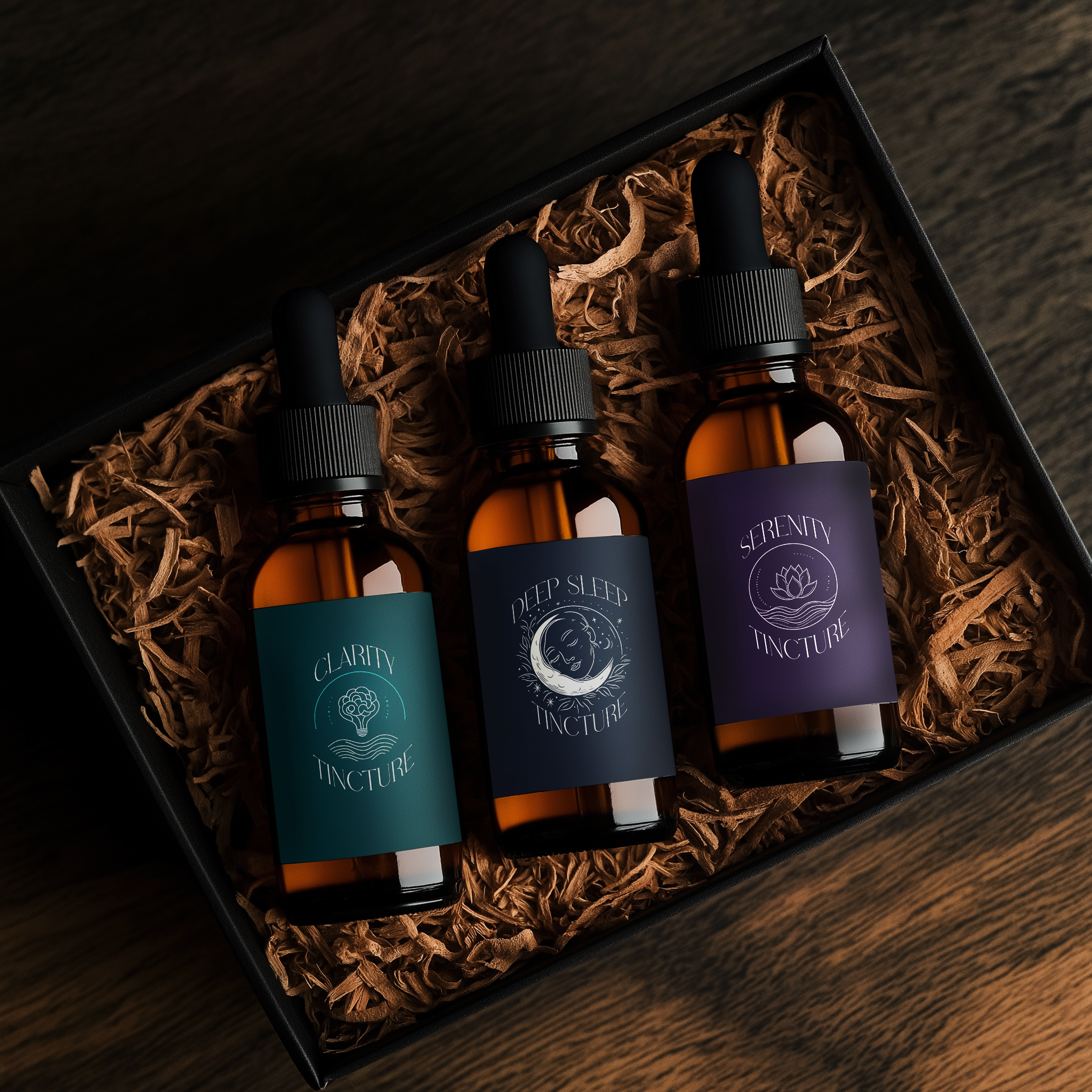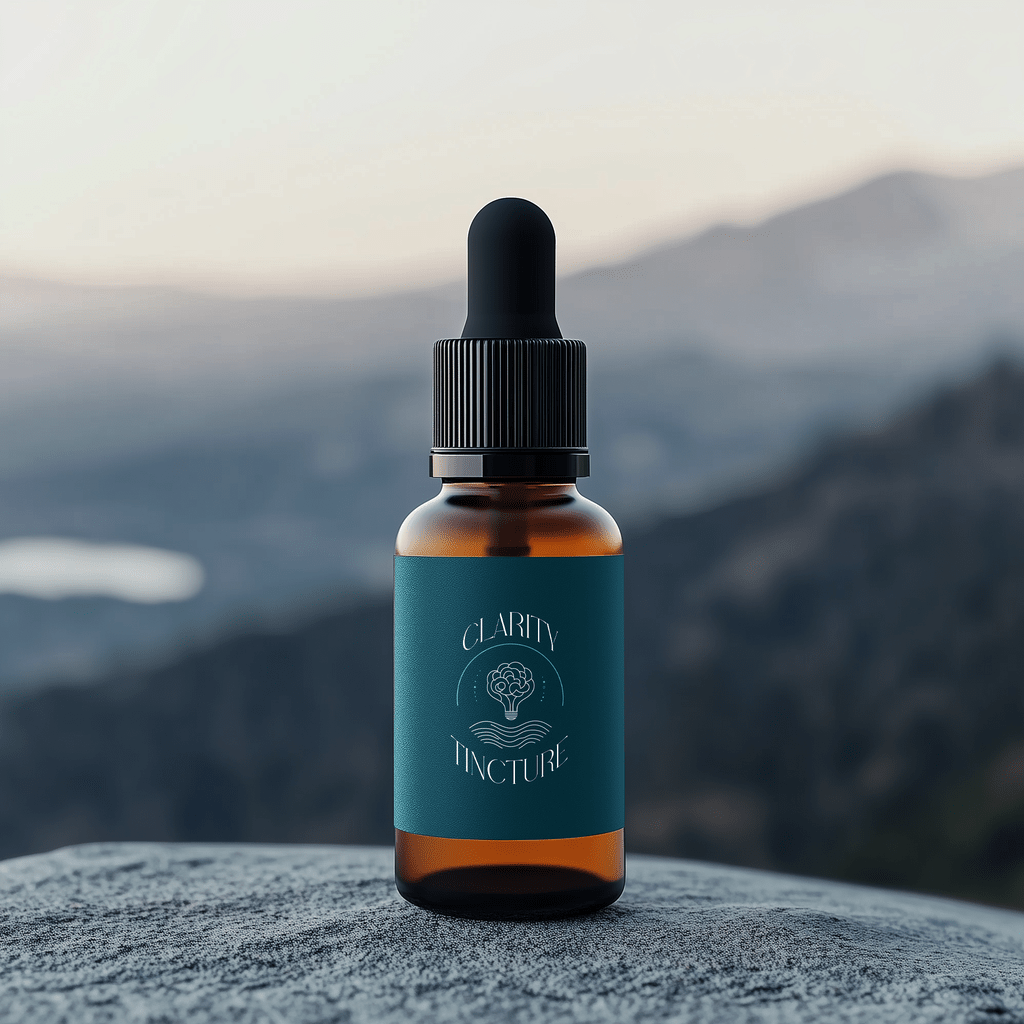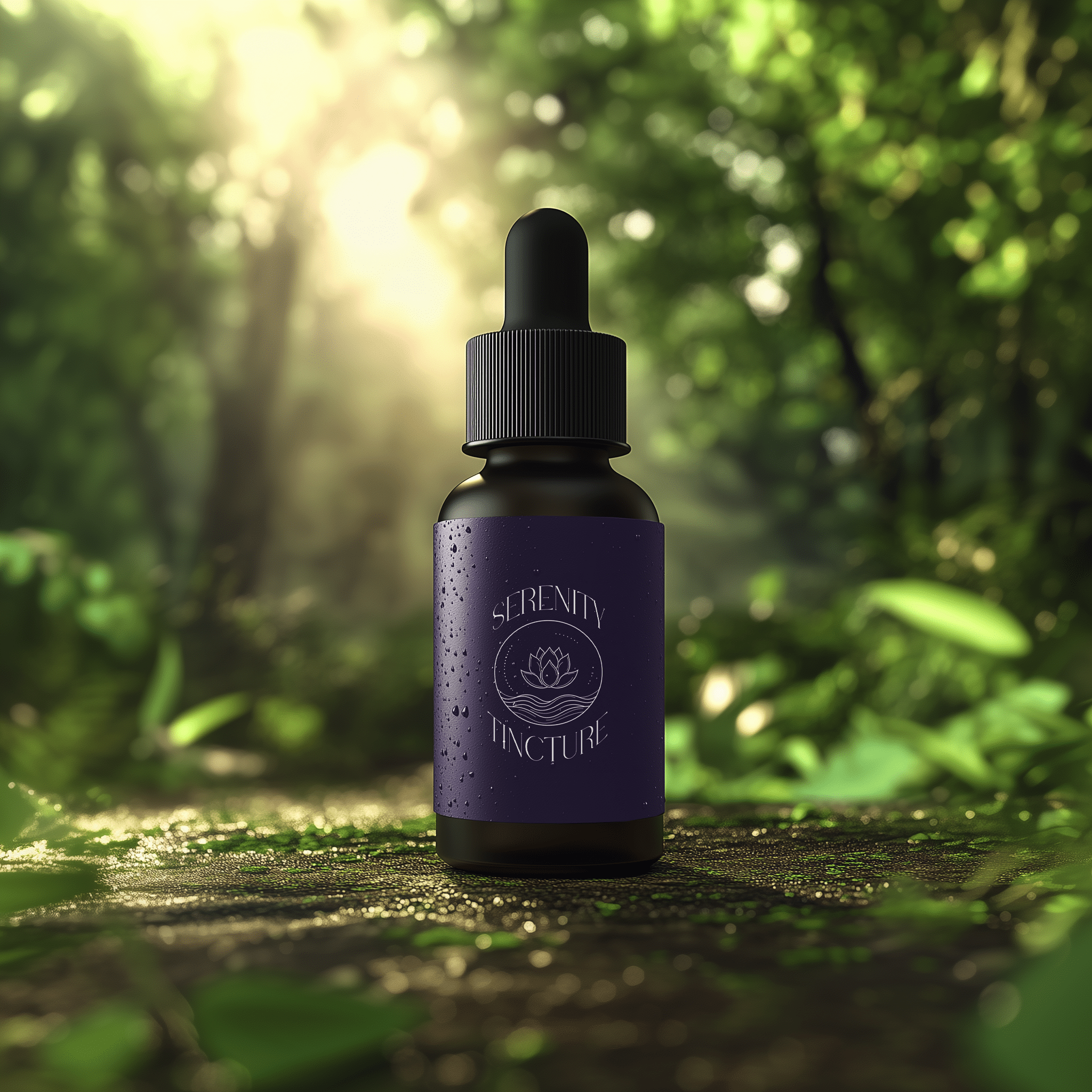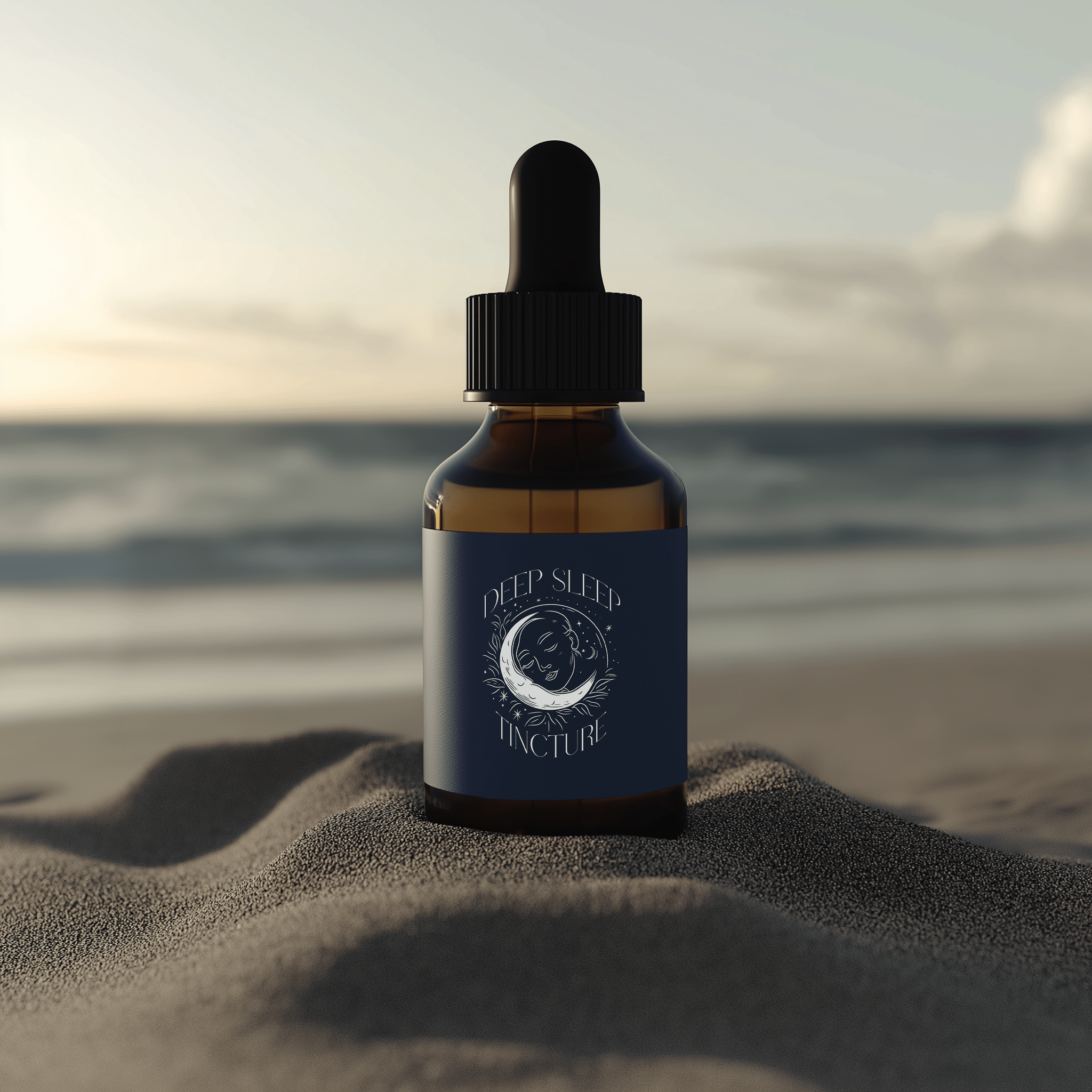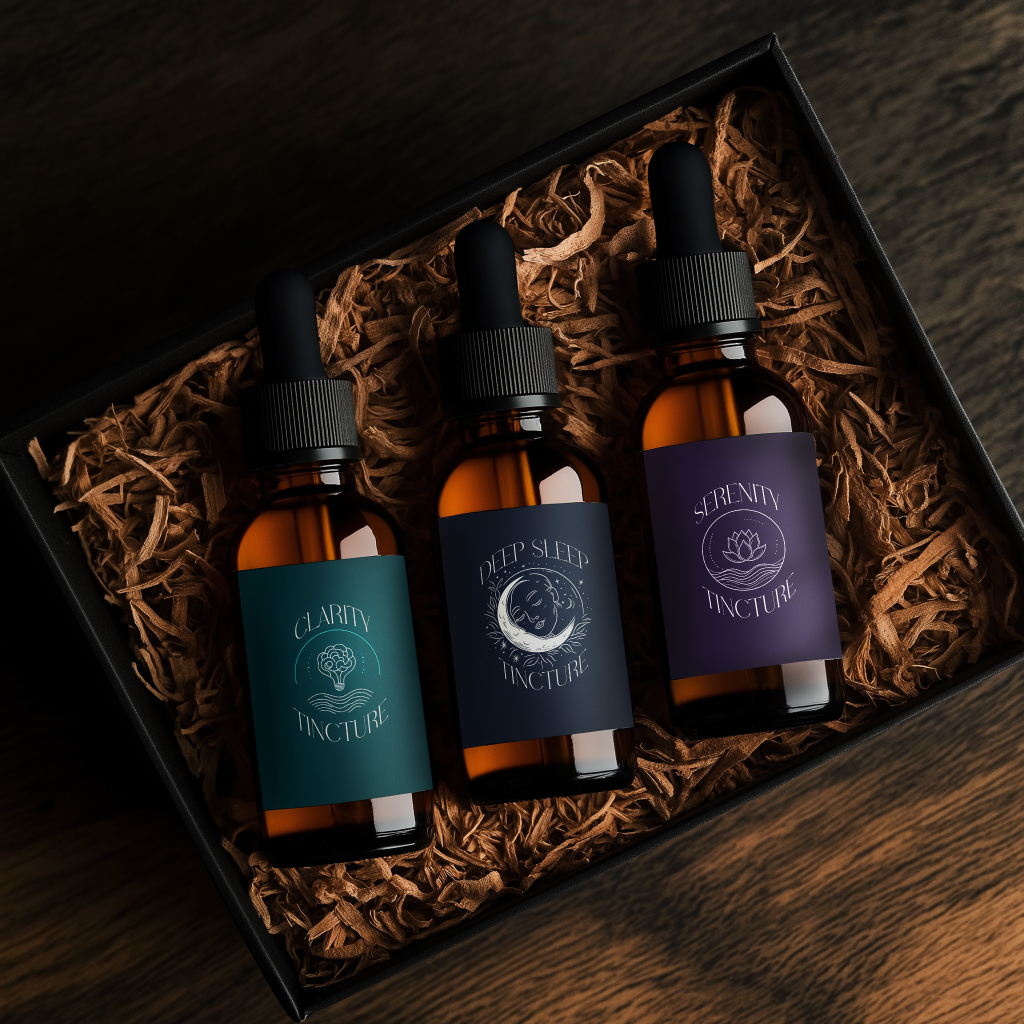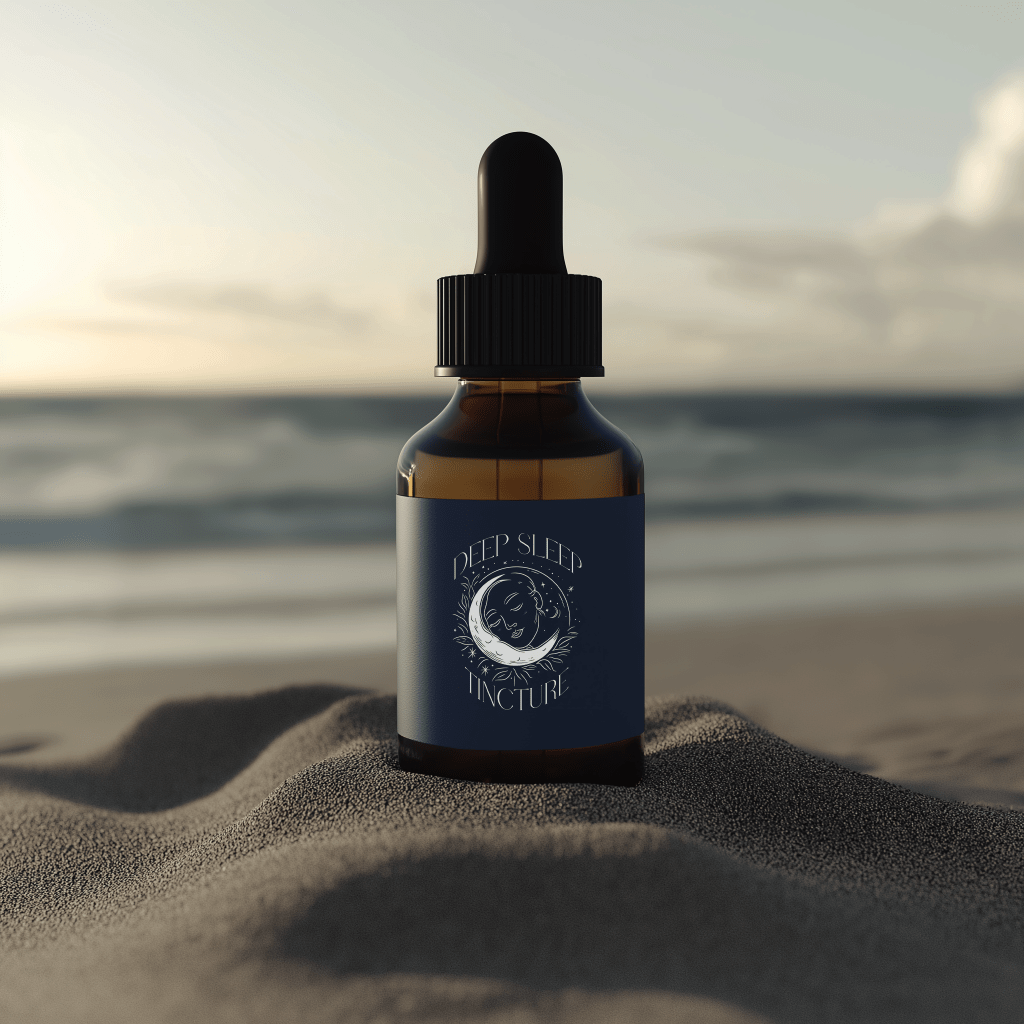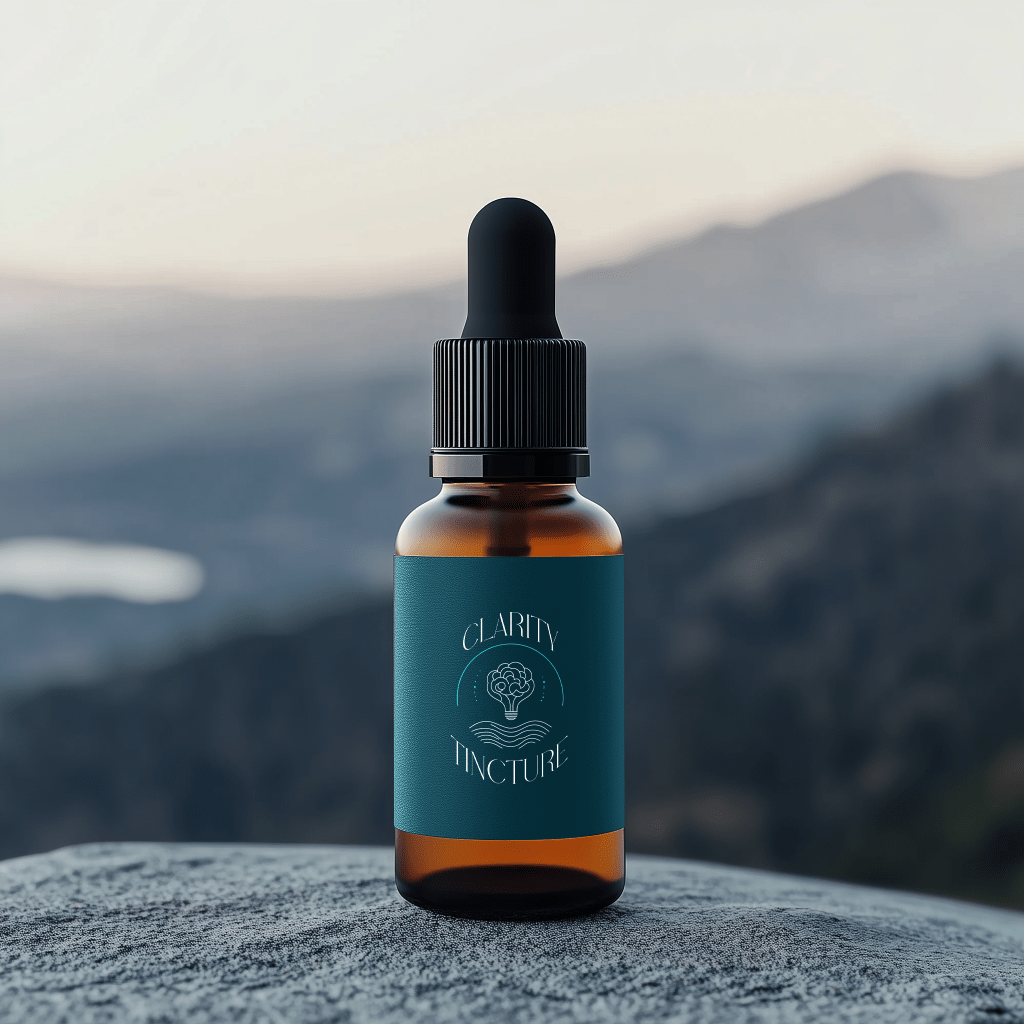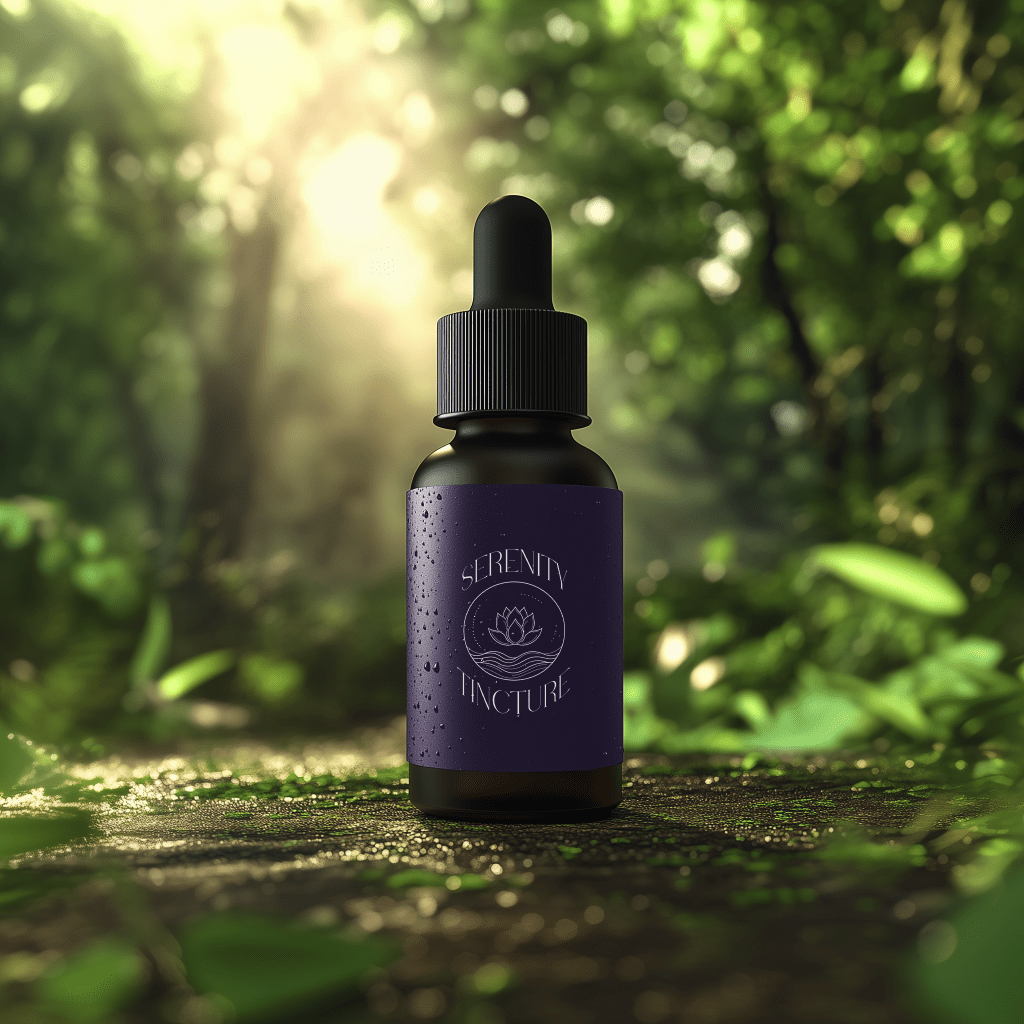Tinctures
-
Sale!
Set of 3 tinctures | Tincture bundle gift set
49,50 €Original price was: 49,50 €.40,50 €Current price is: 40,50 €. -
Sale!
Brain Function & Cognitive Support tincture
22,50 €Original price was: 22,50 €.17,10 €Current price is: 17,10 €. -
Sale!
Stress Relief & Anxiety tincture
22,50 €Original price was: 22,50 €.17,10 €Current price is: 17,10 €. -
Sale!
Deep Sleep Tincture
22,50 €Original price was: 22,50 €.17,10 €Current price is: 17,10 €.
What is a Tincture?
In the world of herbal remedies and natural health solutions, tinctures have gained popularity for their effectiveness and ease of use. But what exactly is a tincture? In this article, we’ll explore the definition, preparation methods, benefits, and common uses of tinctures, helping you understand why they are a favored choice for many seeking holistic health solutions.
Definition of Tinctures
A tincture is a concentrated liquid extract made from herbs, roots, flowers, or other plant materials. It is typically prepared by soaking the plant material in a solvent, such as alcohol or glycerin, which extracts the active compounds from the plant. The result is a potent liquid that contains the medicinal properties of the herbs, making it easy to consume and absorb.
How to Use Tincture?
Tinctures are versatile herbal extracts that offer a convenient and effective way to incorporate natural remedies into your wellness routine. Whether you’re new to tinctures or looking to optimize their use, this guide will provide you with essential information on how to use tinctures effectively and what they are commonly used for.
How to Use Tinctures
1. Determine Dosage
- Consult Guidelines: Each tincture may have specific dosage recommendations based on its formulation and intended use. Check the product label for guidance on how much to take.
- Start Small: If you’re new to tinctures or trying a new herb, begin with a smaller dose to see how your body reacts. Typical dosages range from 1 to 3 dropperfuls (about 30-90 drops) per serving.
2. Choose Your Method of Administration
Sublingual Method: The most effective way to take a tincture is sublingually. Place the recommended dose under your tongue and hold it there for 30-60 seconds before swallowing. This allows for rapid absorption into the bloodstream.
Mix with Liquid: If the taste of the tincture is too strong, you can add it to a small amount of water, tea, or juice. This method can make it more palatable, although it may take slightly longer to absorb.
Add to Food: Tinctures can also be added to foods such as smoothies or yogurt, but keep in mind that heat can affect the potency of the tincture, so avoid adding it to hot meals.
3. Frequency of Use
Follow Recommendations: Depending on your needs and the specific tincture, you may use it 1 to 3 times per day. Consistency is key for experiencing the full benefits of the tincture.
Listen to Your Body: Pay attention to how your body responds to the tincture. You can adjust the dosage and frequency based on your experience and desired effects.
4. Store Properly
- Keep in a Cool, Dark Place: To maintain potency, store tinctures in a cool, dark place away from direct sunlight and heat sources. A dark glass bottle is ideal for preserving the quality of the tincture.
What is Tincture Used For?
Tinctures are made from various herbs and can serve a multitude of purposes, depending on the specific ingredients used. Here are some common uses for tinctures:
1. Stress and Anxiety Relief
- Relaxation: Tinctures containing herbs like Ashwagandha, Lemon Balm, and Passionflower are often used to promote relaxation and alleviate stress. They can help calm the nervous system and support emotional well-being.
2. Sleep Support
- Improved Sleep Quality: Herbs such as Valerian Root, Chamomile, and Lavender are popular in tinctures aimed at improving sleep quality and helping individuals fall asleep faster.
3. Cognitive Function
- Memory and Focus Enhancement: Tinctures made with Bacopa Monnieri, Ginkgo Biloba, and Gotu Kola are known for their cognitive support properties, promoting mental clarity, memory retention, and overall brain health.
4. Digestive Health
- Digestive Aid: Tinctures that contain herbs like Peppermint, Ginger, and Fennel can help relieve digestive discomfort, reduce bloating, and support overall digestive function.
5. Immune Support
- Boosting Immunity: Certain tinctures are formulated with immune-boosting herbs like Echinacea and Elderberry, which are commonly used to support the body’s natural defenses against illness.
6. Pain Relief
- Natural Analgesics: Tinctures made from herbs such as Turmeric and Willow Bark may help manage pain and inflammation, offering a natural alternative to over-the-counter pain relievers.

